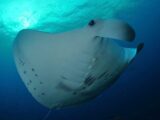Sea of Change Foundation Supports Development of eDNA Reef Health Assessment Tools
August 2, 2023Yearly, the Sea of Change Foundation provides support for innovative coral restoration projects worldwide. These projects, which have been undertaken in various locations including the Caribbean, Florida, Bahamas, and Malaysia, are funded through the foundation’s Reef Rescue & Rapid Response Program and Conservation Priority Grants focused on Coral Reefs – Restoration and Resilience. The foundation is now excited to announce its collaboration with the University of South Florida’s Department of Integrative Biology to fund a new project. This project aims to develop a reef health assessment tool using environmental DNA (eDNA) for both degraded and restored reefs.
eDNA refers to the DNA present in cells that organisms shed into their surrounding marine environment, such as sediments. By sampling and evaluating this eDNA using advanced lab-based methods, biomarkers of reef health can be created. With the support of the Sea of Change Foundation, the USF-Parkinson Lab of Coral Symbiosis Research is conducting a project titled “Quantifying the efficacy of coral reef restoration from bacterial and metazoan community composition derived from eDNA.” This project has already yielded promising results from samples collected at reefs in Japan, which represent healthy, degraded, and restored coral reef locations. A comparison is being made between reef bacterial and metazoan communities in Roatán, Honduras, and Okinawa, Japan, to identify universal indicators of reef health derived from eDNA.
The project has successfully identified indicator species representing different reef health categories from eDNA-sediment samples collected in Japan. Furthermore, a statistical model developed from these data has demonstrated a 91.23% success rate in predicting reef health. In August, similar sampling and analysis will be conducted in the waters of Roatán, including the training of local students in these methodologies.
This research is crucial due to the increasing threats faced by coral reefs worldwide, including rising ocean temperatures, pollution, coral diseases, and other human-induced stressors. While coral nurseries and out-plantings have become important restoration activities in recent years, they are labor-intensive and expensive. The results of this project provide encouraging support for establishing quantifiable baselines for healthy and degraded reefs, which can then be used to assess restored reef health. Such tools will be vital for successful large-scale coral conservation in the future.
The Sea of Change Foundation is dedicated to supporting the important work of saving coral reefs for future generations. Samantha Whitcraft, the foundation’s Executive Director, expressed her optimism about this research, emphasizing the need for tools that can determine optimal coral populations and restoration locations. Wayne Brown, CEO of Aggressor Adventures and Chairman of the Foundation’s Board, echoed this sentiment and reaffirmed the foundation’s commitment to coral reef conservation.
HTML Code:
“`html
Yearly, the Sea of Change Foundation supports innovative coral restoration projects around the world, including past and present projects in the Caribbean, Florida, Bahamas, and Malaysia via both their innovative, community-based Reef Rescue & Rapid Response Program and via their Conservation Priority Grants that focus on Coral Reefs – Restoration and Resilience. Now, in support of the University of South Florida’s Department of Integrative Biology, the Foundation is pleased to help fund another such project, this time focusing on developing a reef health assessment tool for both degraded and restored reefs using environmental DNA (eDNA).
 Read the original article here
Read the original article here


